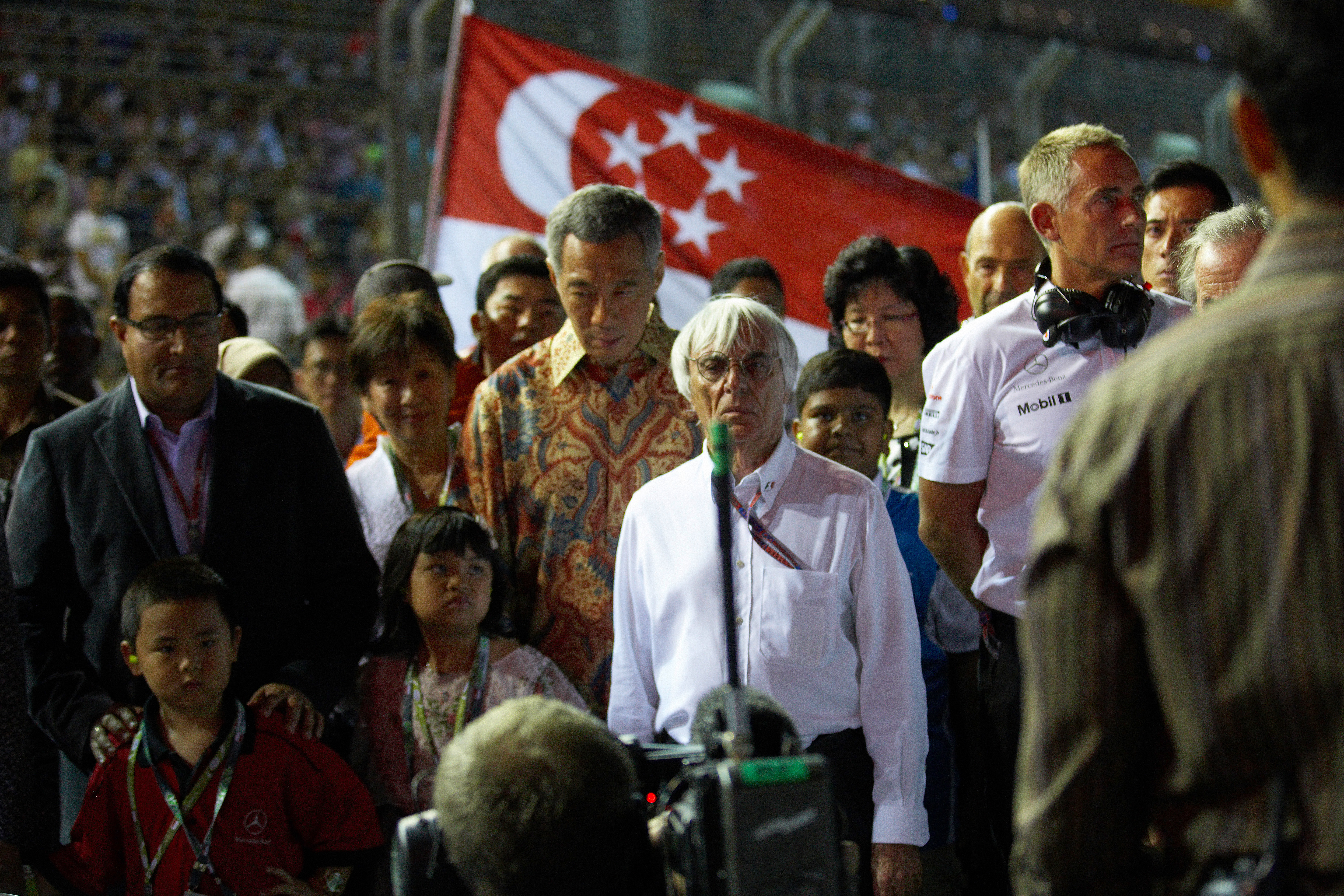We heard that Bernie Ecclestone, the colourful Chief Executive of the Formula One Group, lamented that the Singapore organisers -- including the government -- might not extend our F1 deal beyond next year.
And he decided to air his grievances with a German sports magazine to get some attention.
Below are the comments he made to Auto Motor Und Sport:
"Es ist das gleiche mit den Veranstaltern. Schauen Sie sich an, was wir für Singapur getan haben. Ja, der Grand Prix hat Singapur viel Geld gekostet. Aber er hat ihnen auch viel Geld gebracht. Singapur war plötzlich mehr als nur ein Flugplatz, um von dort irgendwo hin zu fliegen. Jetzt glauben sie, dass sie ihr Ziel erreicht haben und wollen vielleicht keinen Grand Prix mehr."
Which can be loosely translated to:
"Look at what we have done for Singapore. Yes, the Grand Prix has cost Singapore a lot of money, but we've also given them a lot of money. Singapore was suddenly more than just an airport to fly to or from somewhere. Now they believe they have reached their goal and they do not want a grand prix any more."
The Singapore Grand Prix (SGP) has been part of the F1 calendar since 2008, so it would be a shame if "F1's crown jewel", in Ecclestone's words, decided to end its run next year.
But what are the implications of Ecclestone's colourful language on the average Singaporean? Should we be worried, or even bother?
1. Ecclestone is hoping to win the court of public opinion and pressure the responsive Singapore government to intervene.
Perhaps he thought that the Rio Olympics live coverage strategy will work again.
After all, Singaporeans kicked up such a big fuss before Rio that MediaCorp had to broker a new last-minute deal with Dentsu, the Olympics broadcast rights holder, after re-entering negotiations on Aug. 5, a day before the event starts.
But F1 is not a once-in-four-years affair and we do not have a Joseph Schooling driving an F1 car.
He is assuming that the average Singaporean gives two hoots about F1.
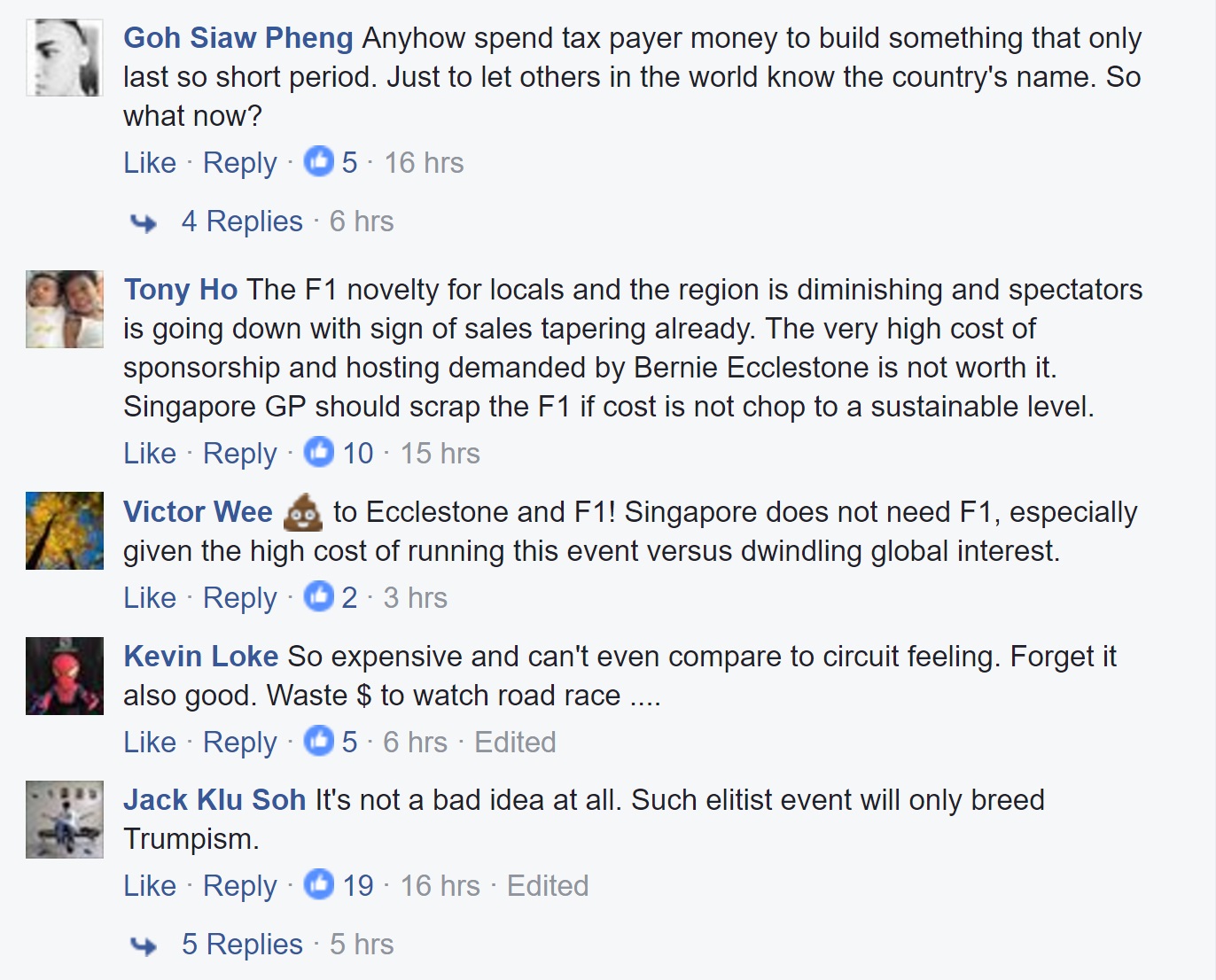 Source: CNA FB.
Source: CNA FB.
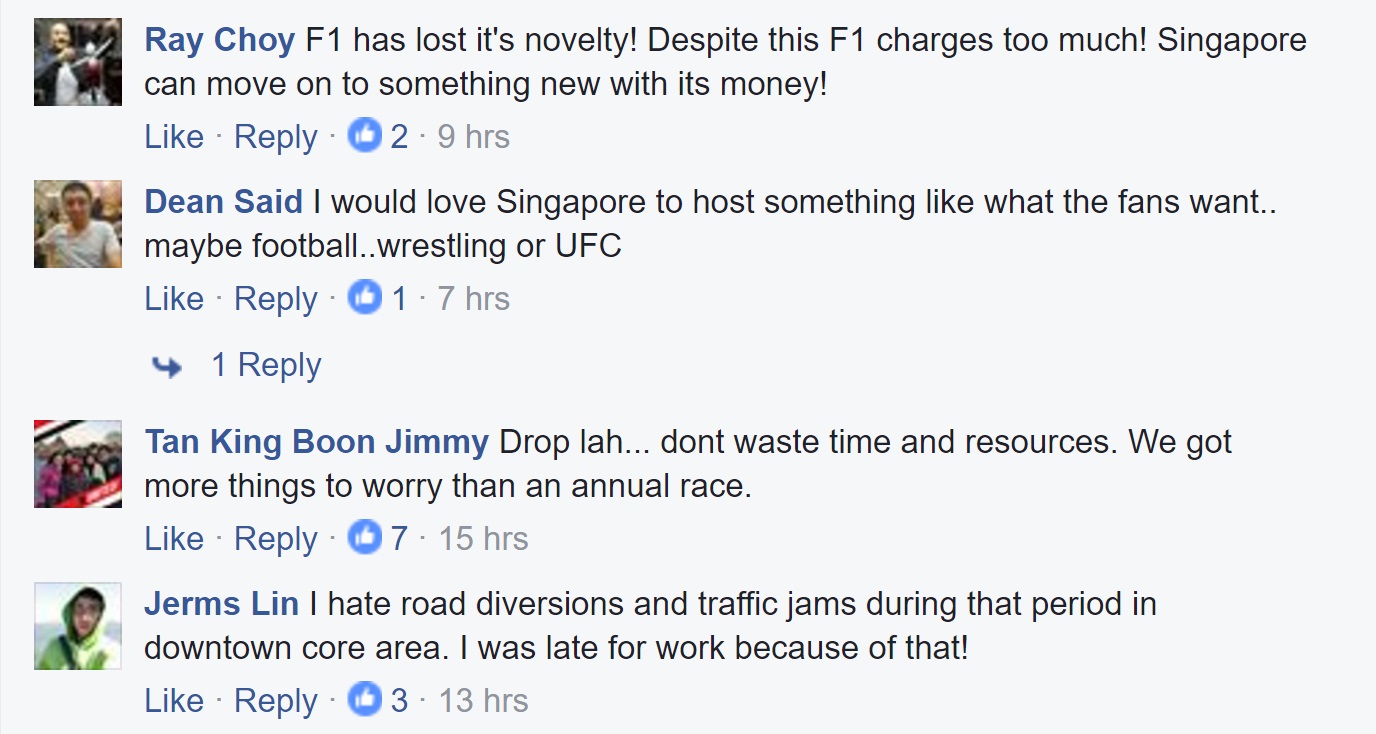
If the comments online are anything to go by, he is assuming wrong.
2. Singapore organisers have been classy in their response, but it sounds like negotiations are not going well.
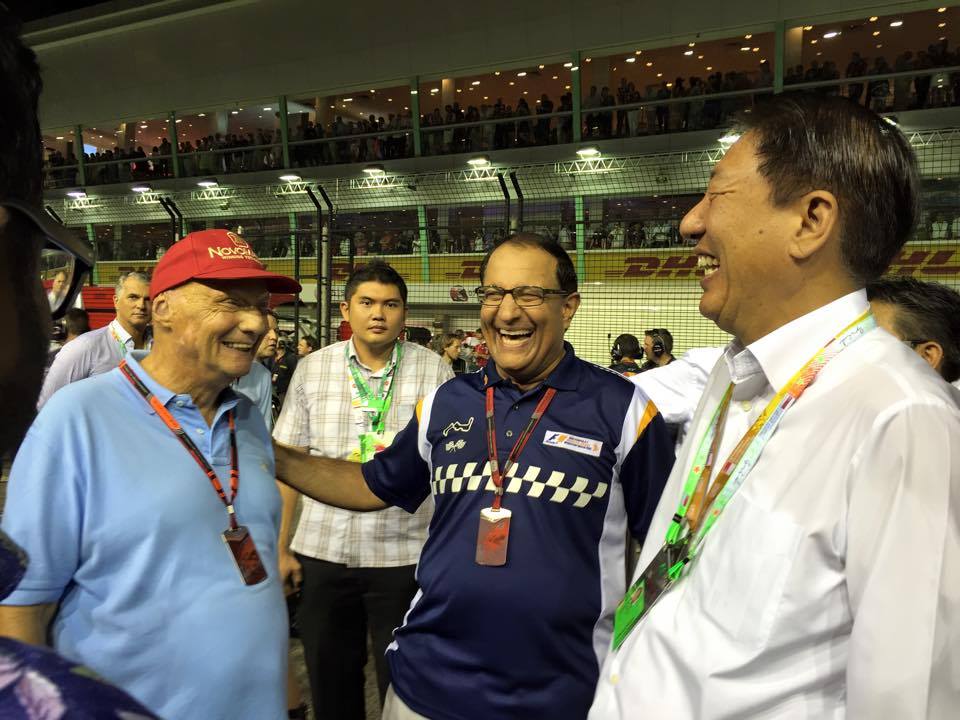 Source: Teo Chee Hean Facebook.
Source: Teo Chee Hean Facebook.
Thankfully, though, F1 organisers in Singapore refused to be baited by Ecclestone's language.
These vivid comments were of course picked up by the international media, including Hong Kong's South China Morning Post.
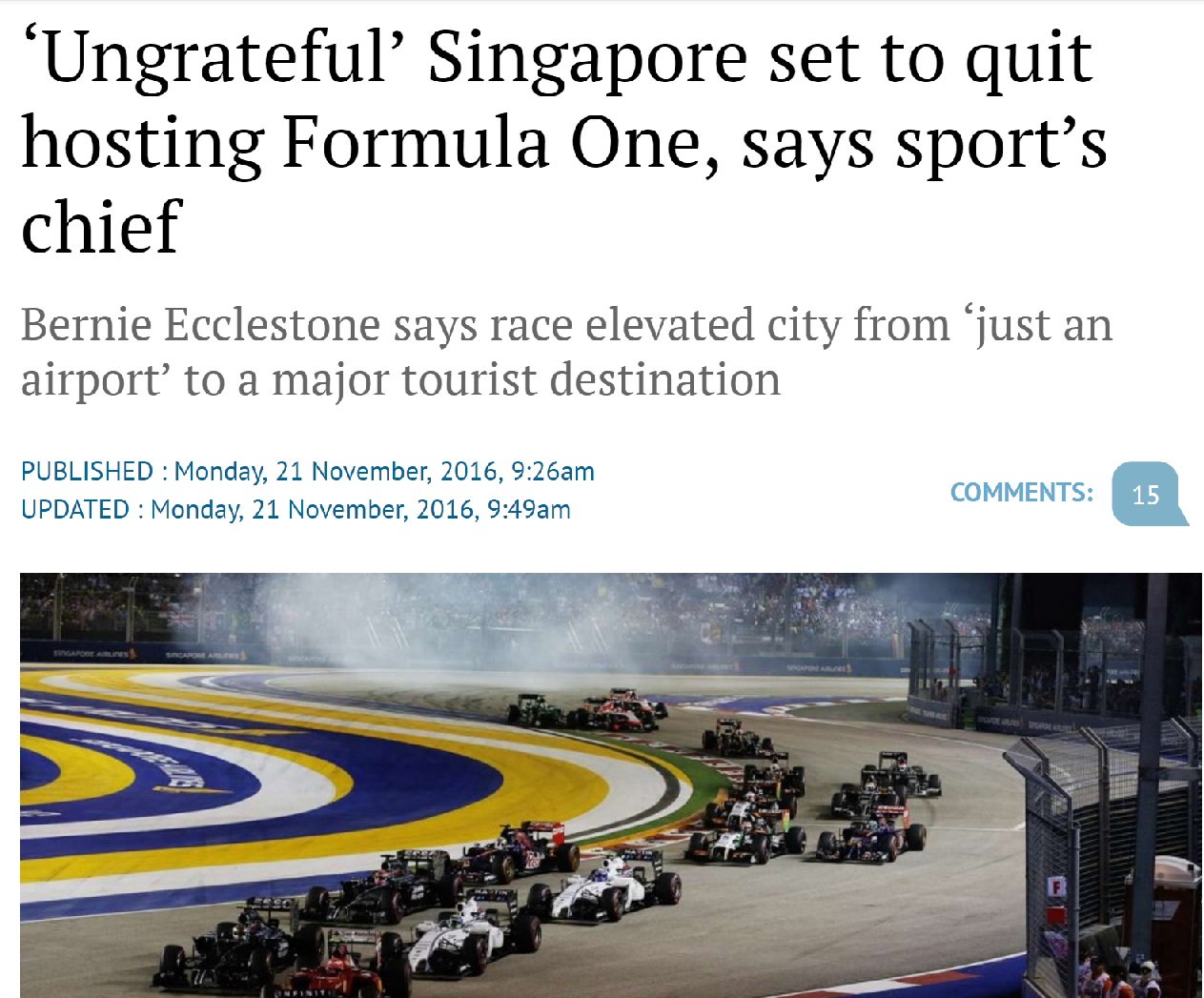 Source: South China Morning Post.
Source: South China Morning Post.
Being grateful or ungrateful, which wasn't what Ecclestone said about Singapore by the way, was not what the spokesperson from Singapore GP wanted to address, though.
The spokesperson told TODAY and The Straits Times that it "doesn’t comment on ongoing commercial negotiations".
Which means they are still keeping their cards close to their chests.
If we read the tea leaves correctly, though, negotiations between us and F1 are not going as smoothly as one might hope.
Just check out the articles from the same journalist at ST's sports desk, for instance —
Within one day, he went from being super optimistic about the deal ("The Straits Times understands that discussions are positive and an extension is likely"), to writing a commentary pouring cold water on the contract extensions ("Some speed bumps on road before deal is done", 18 Sep).
3. Anyway, let's wait for Ecclestone to blink first.
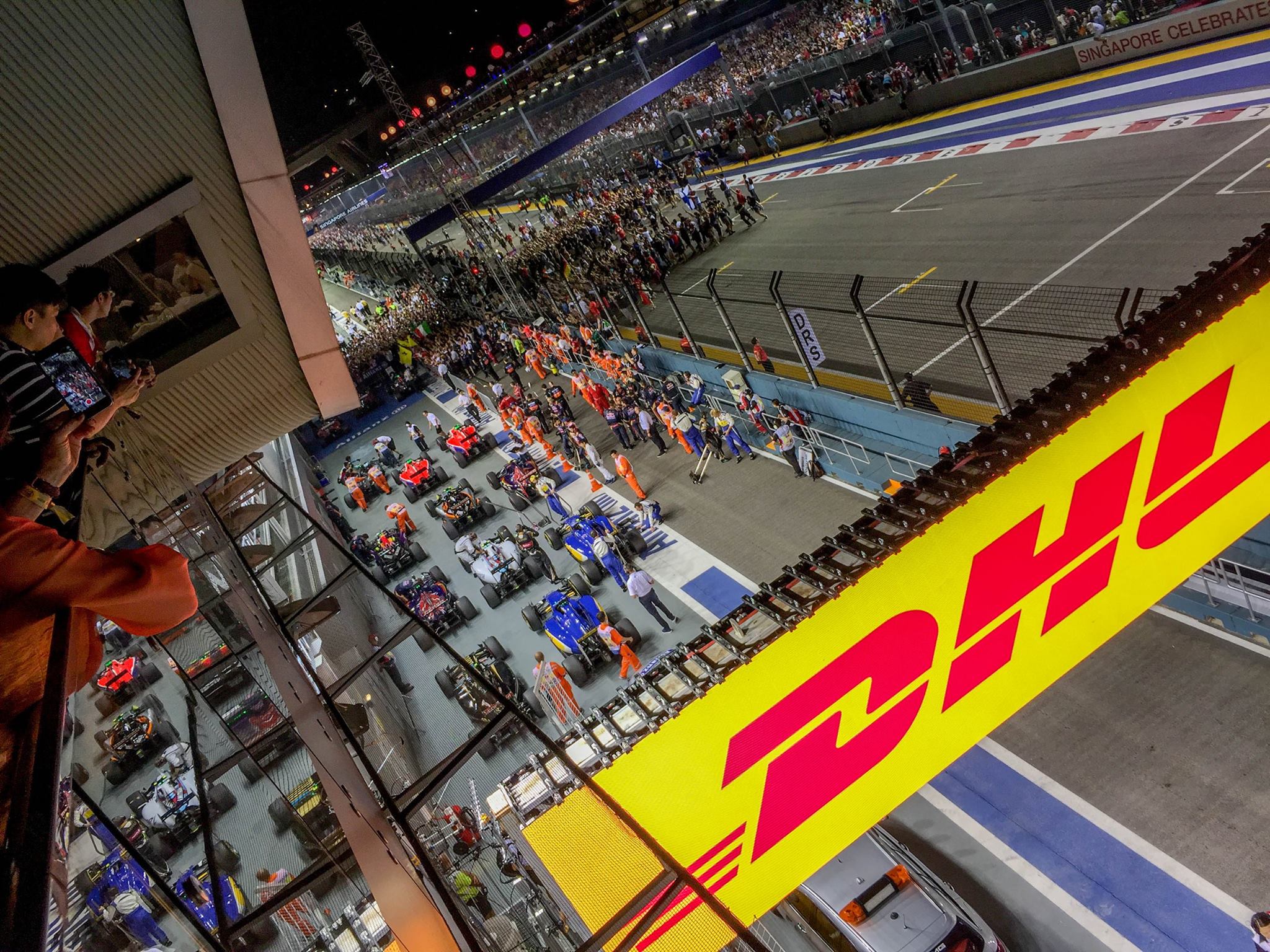 Source: Lee Hsien Loong Facebook.
Source: Lee Hsien Loong Facebook.
At the end of the day, the Singapore organisers have the upper hand in its negotiations, especially if F1 is thinking of raising its prices of hosting the Grand Prix.
i. The global economy is not doing well. This has affected tourism spending, which fell 6.8 per cent to $22 billion last year.
ii. Singapore signed its current contract with F1 just one day before the 2012 SGP. We're doubting the organisers will feel the pressure if they left it to the last minute again.
iii. F1 is not attracting the crowds it used to -- so there is no reason why the Singapore organisers should pay a premium for the event. According to Channel NewsAsia, the 2016 edition saw its poorest ticket sales (15 per cent drop in attendance) since the night race was first held here in 2008.
In 2013, Minister S Iswaran told Parliament that the cost of organising each F1 race is estimated to be about S$150 million, with the government co-funding 60 per cent of approved costs for the race.
In turn, he said that the F1 Singapore Grand Prix has generated about S$150 million in incremental tourism receipts per race, surpassing the original projection of S$100 million per race.
So Mr Ecclestone, the Grand Prix has cost Singapore a lot of money, and is not making nearly as much money for Singapore as it was before.
And Singapore is "suddenly more than just an airport to fly to" not because of an F1 weekend, but because tourists can visit Gardens By The Bay, Marina Bay Sands, Sentosa's Universal Studios, and because Coldplay chose to play at the Sports Hub instead of during the F1 weekend.
So how about giving us a Great Singapore Sale discount on the Singapore Grand Prix and shake hands on it?
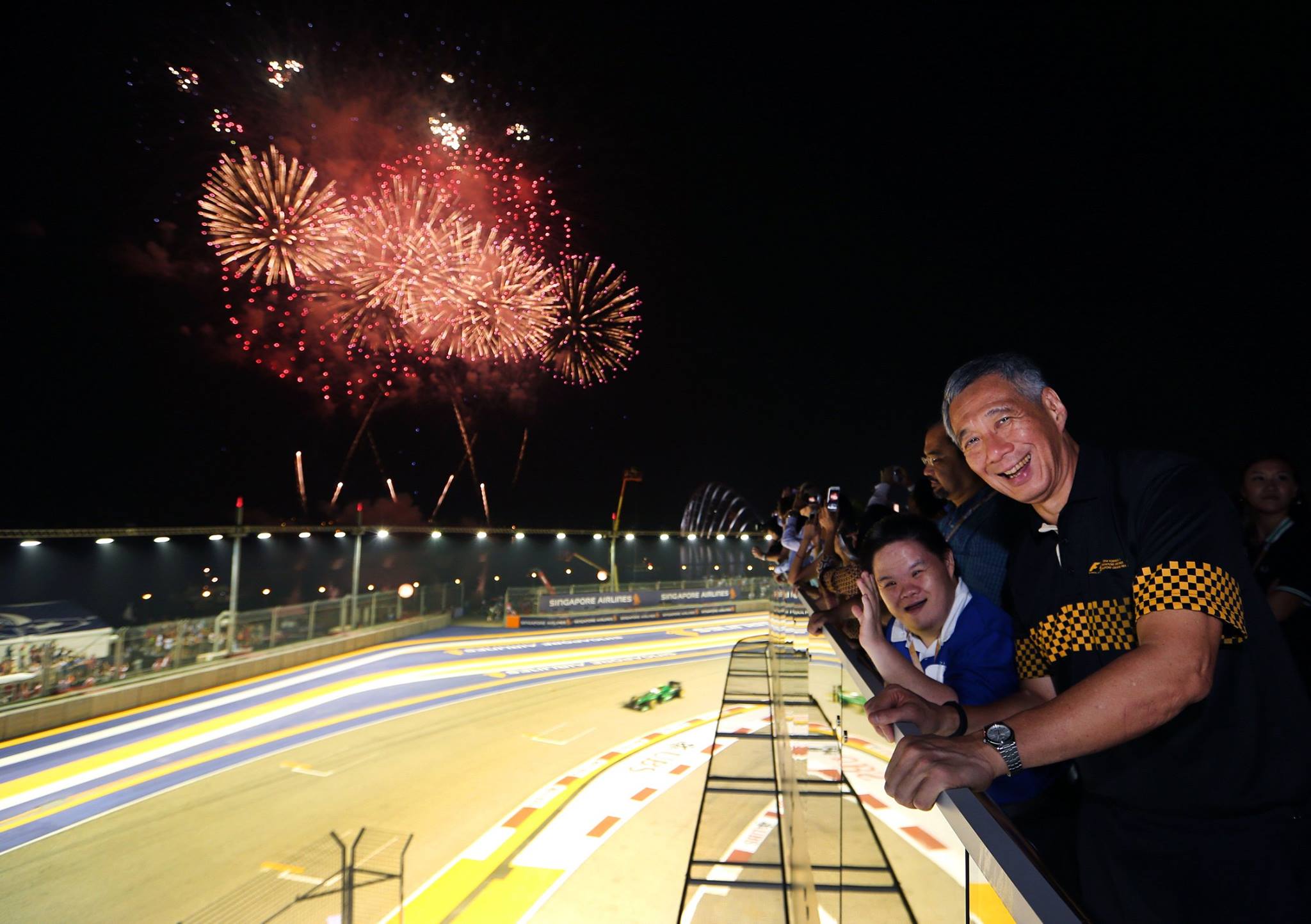 Source: Lee Hsien Loong Facebook.
Source: Lee Hsien Loong Facebook.
We'll throw in more fireworks.
Photo by Rainer W. Schlegelmilch/Rainer Schlegelmilch via Getty Images.
If you like what you read, follow us on Facebook and Twitter to get the latest updates.
If you like what you read, follow us on Facebook, Instagram, Twitter and Telegram to get the latest updates.
